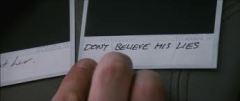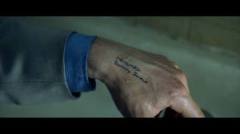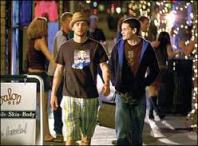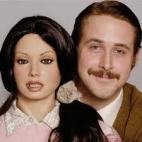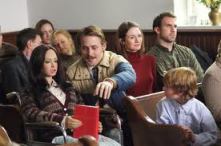[PREMISE: All considerations made into this post were inspired by a conference held by Professor Luca Malavasi in Milan, July 2015. The movies and books quoted were part of his lecture as well]
“You think you know me, don’t you?”
“I’ve read enough”
“You know how much I’ve read about you? Nothing.”
[The Social Network]
They say you could never make a movie about a writer because the best you could do is show him writing. And yet this is a movie about a computer programmer who uses a language that is even more intelligible to most people[1]. I guess it took David Fincher and the excellent writing abilities of Aaron Sorkin to make such a splendid film that spans over computer programming, web strategy and finance.
We all know the story of Mark Zuckerberg, the antisocial nerd who realized that what people wanted most was a glimpse of someone else’s life and gave them that. He created a network that has changed forever the world of social media, triggering a ripple effect that will probably incrementally evolve.
As a matter of fact Sorkin’s dialogues are built as a network, with complexity levels that are a reflection of the same system upon which relationships are built on Facebook. How many among your FB friends do you actually know or spend time with? Most of them are people you may have crossed paths with once in your life or people you’ve actually never even met. There are many other movies that are built like a reticular tissue, from Matrix to the most recent Inception.
I’m not gonna talk about the movie itself and what it means in terms of loyalty to a friend, the conflicts that aroused when people realized the potential value of Facebook or the profile of this young billionaire. I couldn’t do that even if I wanted, let’s not forget that The Social Network still remains a Hollywood movie and therefore Zuckerberg character has been accentuated from the person he probably is in real life. Although there was definitely a mimetic intention during casting: Jesse Eisenberg resembles Mark Zuckerberg as much as Justin Timberlake nailed the role of Sean Parker.
I actually wanna talk about the role of social media and how they’ve affected our way of living and perceiving ourselves, slowly turning us into our own social networks. I guess we could say that Facebook has pioneered this incredible revolution, becoming the third most clicked website, after Google and Youtube, with almost 900.000.000[2] visitors per month. Its population has increased dramatically over the course of a decade, having reached 1.06 billion by the end of 2012.
Many other social media[3] had preceded and many followed its path and became as useful and popular such as Twitter (which has a much simpler and private interface), Linkedin (for professional purposes) and YouTube (video sharing device), that actually is a lot more relevant that people would think.
Now what we ought to ask ourselves is the following: did we start relying so much on those social networks to fulfill some specific needs or did they slowly model our way of thinking and perceiving life that ultimately we have become social networks ourselves?
In this very interesting conference held by Professor Malavasi, several distinct features of our “social media generation” were brought up. Three of them were actually quoted from Henry Jenkins[4], an estimated Professor, writer of Convergence Culture: Where Old and New Media Collide[5]. (I highly suggest you read this book)
- THE NEED FOR SELF-PORTRAIT
More commonly known as “selfies”, these silly pictures taken with one arm stretched out and nothing but your gigantic face to fill in the screen have become so popular that even President Obama took some. Dr. Terri Apter[6], psychology lecturer at Cambridge University, says it’s “A kind of self definition. […] We all like the idea of being sort of in control of our image and getting attention, being noticed, being part of the culture”. But mostly, the concept of self-portraying implies that you’re somehow able to control your image and present yourself, as you’d like to be perceived by others
- CONVERGENCE
Defined by Jenkins as the “flow of content across multiple media platforms, the cooperation between multiple media industries, and the migratory behavior of media audiences who would go almost anywhere in search of the kinds of entertainment experiences they wanted” - PARTICIPATORY CULTURE
According to Jenkins “In this emerging media system, what might traditionally be understood as media producers and consumers are transformed into participants who are expected to interact with each other according to a new set of rules which none of us fully understands” - COLLECTIVE INTELLIGENCE
This participatory culture inevitably generates an intelligence without boundaries that relies on inputs given by billion of users
For some reason I was by far the youngest person sitting through that conference and once all these variables were explained many older people commented, saying that all this sounded really bad and dangerous (some of them had already walked out during the screening of The Social Network because the dialogues were too hard to follow. In their defense we were also watching it in English with Italian subs. Try doing that with a Sorkin screenplay and let me know how it works out.) We obviously talked about the consequences that this new “social media society” has on the individual. And not all of them were bad…
FEAR THE CHANGE!
- Social etiquettes and routines don’t exist anymore
- Medias have lost their specificity
- People have lost their identities
The paradigm of modern society expects a state of constant activity and therefore someone to direct this activity that is not human, that simply never needs to rest. If there’s someone watching, it means that someone else is providing content to watch and share. Therefore social etiquettes have lost their value: it’s never too late to call or shame in being online at 4 am. And after all if you can’t sleep, why don’t tell it to the rest of the world?
About the deprivation of sleep, a very cool book was mentioned in class. Written by Jonathan Crary called “24/7: Late Capitalism and the Ends of Sleep”[7] that talks about the awful consequences of the expanding non-stop processes of twenty-first century capitalism; having a market that operates literally 24/7 pushes us into being in constant activity. And this applies to us not only as consumers but especially as media consumers or better yet, relating to Jenkins definition of Participatory Culture, as participants.
“Maybe It was all inevitable. An unavoidable collision between mankind and technology.
The internet was meant to make the world a smaller place.
But it actually feels smaller without it”
[Transcendence]
As mentioned earlier in this post, the relationship with our own biography has dramatically changed in the last decade and having the need to post everything we do means that we’re evaluating our bio on a quantitative basis rather than a qualitative one. How many likes did I get? How many views will my video receive? How many followers on Instagram?
Now the real question is: are we the same people we put out there on Facebook? Aren’t we just projecting a better version of ourselves? Or at least the version of ourselves we’d like (and need) other people to think we are.
Our virtual identities are not we. They just look like us.
This induces a process called depersonalization, defined by the American Psychiatric Association[8] as “alteration in the perception or experience of the self so that one feels detached from and as if one is an outside observer of one’s mental processes or body”
Of course the Film Industry has grasped this major change in society and produced several movies that take this matter into consideration. Here are a few that were mentioned in class.
Transcendence: Johnny Depp plays a scientist trying to create an artificial intelligence by uploading his own consciousness into a program. He ultimately becomes a network himself. [Fun Fact: This is the directorial debut for Wally Pfister who had previously worked with major directors, including David Fincher, as director of photography[9]]
Lucy: A woman turns into a warrior by gradually expending her brain activity, evolving beyond human logic. Her evolution coincides inevitably with her disappearance. Once she reaches 100% power, she’s everywhere and nowhere until her own body dematerializes. Directed by Luc Besson.
Gone Girl: David Fincher is the director but this film doesn’t fall into its “post modern phase”; Professor Malavasi pointed out that it actually feels almost as a Hitchcock movie. It’s particularly interesting for its use of narration and reverse narration that enable us to relive the whole story from Amy point of view. And it’s because of her character that this movie is so strictly connected especially to the process of depersonalization. Amy describes in her diary the woman she has become for Nick but she gets to the point where it’s not even clear to herself who she really is. Ultimately, she can’t distinguish reality anymore.
Sens8: Created by Straczynski and the Wachowski brother and sister (directors of The Matrix franchise) and produced by Netflix, this is actually a TV series. 8 people around the world discover to be mentally linked and therefore can operate as one single unit capable of interchanging their respective abilities. Together they are a perfect example of collective intelligence and they operate better and more efficiently as a whole.
THERE MUST BE SOME GOOD
After exploring the not so good consequences that this revolution is triggering, let’s talk about the good that comes out of it.
First of all, I’d like once more to cite a paragraph from Jenkins “Convergence Culture”. And to think that this book was written in 2006 when we were beginning to enter convergence culture and yet it depicted a scenario that turned out to be exactly…
From the paragraph The Cultural Logic Of Media Convergence: “The American media environment is now being shaped by two seemingly contradictory trends: on the one hand, new media technologies have lowered production and distribution costs, expanded the range of available delivery channels, and enabled consumers to archive, annotate, appropriate, and recirculate media content in powerful new ways. At the same time, there has been an alarming concentration of the ownership of mainstream commercial media, with a small handful of multinational media conglomerates dominating all sectors of the entertainment industry. […] Convergence, as we can see, is both a top-down corporate-driven process and a bottom-up consumer-driven process. Corporate convergence coexists with grassroots convergence. Media companies are channels to expand revenue opportunities, broaden markets, and reinforce viewer commitments. Consumers are learning how to use these different media technologies to bring the flow of media more fully under their control and to interact with other consumers. The promises of this new media environment raise expectations of a freer flow of ideas and content.”
This “freer flow of ideas” is exactly the good that comes out of it. Grassroots productions are encouraged and there’s a streaming of new personal content (You Tube plays a bigger role than any other platform in this matter). What’s interesting though is not only the creation and diffusion of new content by the consumer/participant but especially the remaking of existing content.
As a matter of fact we find ourselves in what could be called REMIX ERA.
Through the Internet virtually everything has become available for manipulation. Movies are downloaded and re-edited, re-dubbed, taken into pieces as well as any textual content such as articles, interviews and reviews. This obviously implies the following:
- Downfall of copyright
- Loss of substance
- Loss of privacy
With these premises, it’s undoubted that editing has become the lexicon of our time. We’re all post producers and have taken the habit of editing everything, even ourselves.
I don’t know much about the music industry and I wouldn’t feel comfortable talking about it too much. But I guess this consideration could also explain the change in the role of the DJ and why he has become the show himself. Music festivals have become these huge events that are themselves a powerful platform to spread new ideas and sounds and they are built around “celebrity DJs” who become the main attraction.
Again, the consumers have become participants and they go to festivals not only to be entertained but also to be educated and discover new music. As a matter of fact I understand that some DJs have actually been criticized for “playing predictable or possibly pre-recorded sets”[10].
In return, participants transmit energy at high intensity that enables the DJ to pull such a great show. To cite Sebastian Ingrosso (whom departed from the DJ trio Swedish House Mafia in 2013): “The most important thing is now what we play, but the personality and how we interact with the crowd.”[11]
————————————————————————————————————————————————–[1] The Social Network. Roger Ebert. http://www.rogerebert.com/reviews/the-social-network-2010
[2] Top 15 Most Popular Websites. eBizMBA guide. http://www.ebizmba.com/articles/most-popular-websites
[3] The World’s Most Important Social Media Sites and Apps in 2015, Randy Milanovic, Social Media Today. http://www.socialmediatoday.com/social-networks/2015-04-13/worlds-21-most-important-social-media-sites-and-apps-2015 [4] Henry Jenkins. https://en.wikipedia.org/wiki/Henry_Jenkins
[5] Confessions of an Aca-Fan: The Official Weblog of Henry Jenkins. http://henryjenkins.org/2006/06/welcome_to_convergence_culture.html
[6] Why We Really Take Selfies: The “Terrifying” Reasons Explained. Radhika Sanghani. The Telegraph. http://www.telegraph.co.uk/women/10760753/Why-we-really-take-selfies-the-terrifying-reasons-explained.html
[7] 24/7: Late Capitalism and the Ends of Sleep. http://www.versobooks.com/books/1570-24-7
[8] American Psychiatric Association (1994) Diagnostic and Statistical Manual of Mental Disorders (4th edn) (DSM–IV). Washington DC: APA.
[9] Chat Room: Wally Pfister. http://shootonline.com/news/chat-room-wally-pfister
[10] What Is a DJ’s Role in Today’s Dance Music Festivals? Michelle Lhooq. https://thump.vice.com/en_us/article/what-is-a-djs-role-in-todays-dance-music-festivals
[11] The D.J. Maestros Axwell and Ingrosso Aim to Shake the Rafters. Joe Coscarelli. New York Times. http://www.nytimes.com/2015/04/02/arts/music/the-dj-maestros-axwell-and-ingrosso-aim-to-shake-the-rafters.html?_r=3

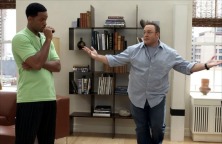 n.
n.

